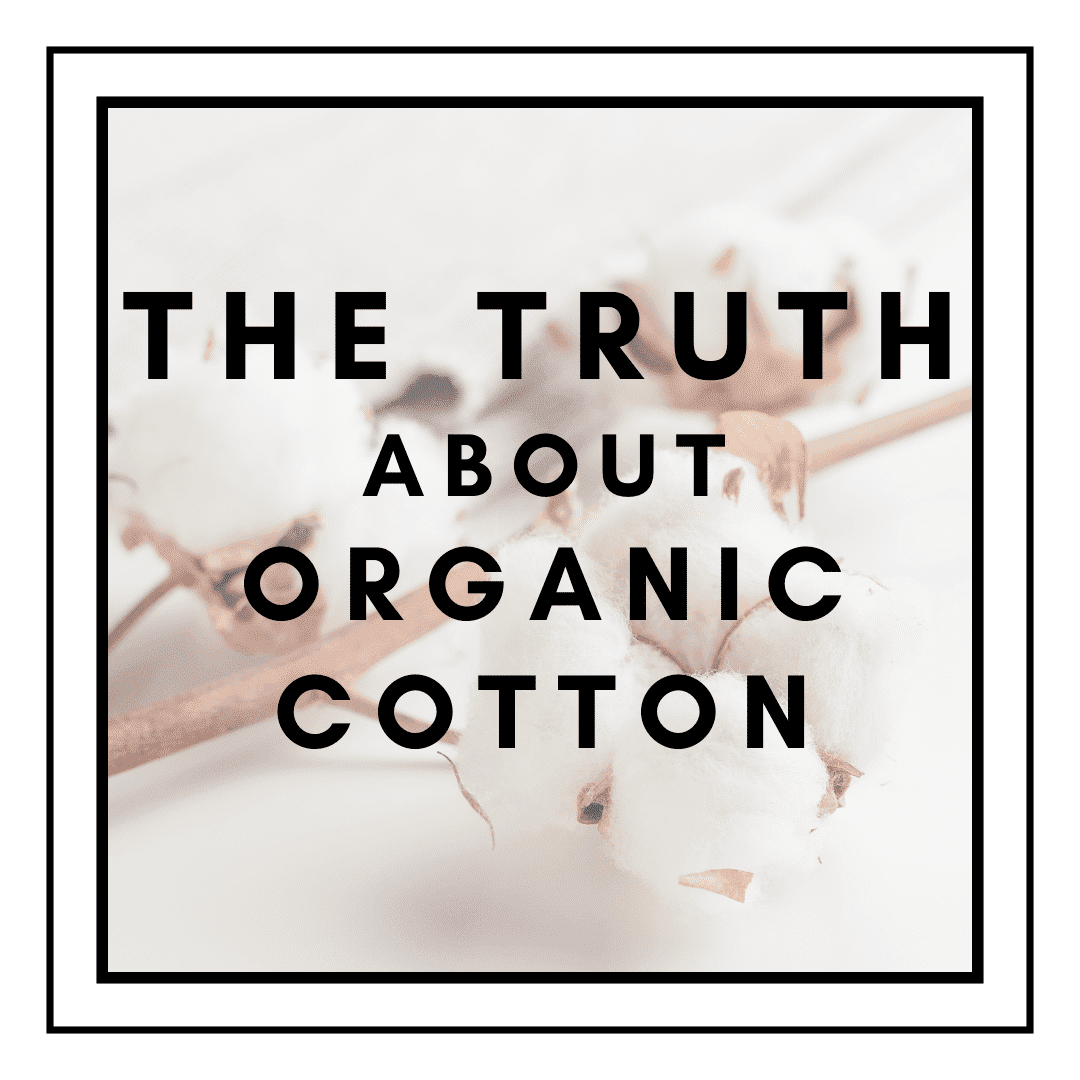
To learn the truth about cotton, you’ve got to be willing to hear the whole story. We’ll break the locks and let you in on the real scoop about organic cotton and the cotton industry.
What is Organic Cotton?
Simply put, organic cotton is cotton that has been grown free from fertilizers, pesticides and herbicides. It is hand-picked and NOT GMO. Yes, it is difficult to grow and more expensive to produce.
In an ideal world, it is treated like the ultimate VIP. It’s irrigation system- rain. The natural dyes used are gentler on the fabric, the workers, and the environment. Pure organic cotton is both biodegradable and recyclable. The catch… it doesn’t come anywhere near close to meeting the current global demand.
Many companies use clever wording and tactics to sell you, the consumer, supposed ‘organic cotton’ products. You’ll often see the word ‘blend’ used. What the hell does that even mean? How can you know if what you’re buying is actually organic, and if so, what is the percentage of organic material used?
The Global Organic Textile Standard, commonly abbreviated GOTS, is the holy grail of organic cotton certification. Unlike other standards, GOTS has an extensive list of requirements that manufacturers must follow to even be considered for carrying the GOTS label. Textile products must contain a minimum of 70% certified organic fibers. The cotton is tracked from start to finish, similar to that ‘chain of custody’ stuff used for evidence that you may have seen on NCIS.
Organic Cotton vs Cotton
Is Organic Cotton Better?
Most of the world’s cotton is GMO. Even some of the world’s organic cotton is treated the same as normal cotton after harvesting. The use of harsh, chemical dyes can render the benefit of organic cotton useless. As can the use of pesticides.
The use of organic cotton versus cotton is a very, VERY sharp double-edged sword. A slew of conflicting statistics will immediately overwhelm you, if you dare to venture into such research. Let’s touch briefly on the topic of Fast Fashion next, which will help you understand why our current society has such high demand for cotton-based products
Fast Fashion emerged in the 90’s. We were catapulted from shopping for a couple of seasons (winter, spring, summer and fall), to new clothing lines being released by brands such as H&M on a nearly weekly basis. Trendy clothes, made available quickly and cheaply has caused an increase in disposability. We’ve adopted a ‘use and throw’ approach to clothing. So where am I going with this? Read on as we get deeper into it…
Is Organic Cotton Sustainable?
Is Cotton Sustainable?
One could argue yes, IF we change our habits. We simply consume too much clothing, regardless of the origin. Ethical, unethical, GMO or not, it really doesn’t matter if the global population remains such a gluttonous monster of cotton consumption. Pretty critical viewpoint, yep. But it’s this realism that will open your eyes and help you understand the situation as it really is. What do you want your role to be as a consumer?
The Environmental Impact of Cotton
Statistics time! Only one percent of the water on our planet is fresh water. Of that, a staggering 70% is used for agricultural purposes. The process of cleaning, bleaching and dying uses even more water. According to a popular figure from the WWF, it requires 2,700 liters of water to produce just one t-shirt. 20,000 liters of water yields just 1 kilogram of cotton- enough for one t-shirt and one pair of jeans.
In many places, the water becomes polluted from the runoff and improper disposing of chemicals. A problem prevalent to India’s most holy Ganges River, among others worldwide. Cotton is the world’s largest consumer of pesticides and insecticides. Varying sources put these figures between 11-25% of the total amounts. For pesticides alone, this equates to 43 million tons used every year.
Energy is required not only to grow, but to manufacture and transport textiles and clothes globally. It remains difficult to quantify these numbers accurately.
Recycled Cotton
Can Cotton Be Recycled?
Yes, but it’s not easy just yet. The forefront of recycling cotton and other materials is now. H&M and Zara both accept old clothes donations at their stores. Half of it is sold overseas, the rest is turned into industrial material, whatever that means. Some end up in landfills. Not even 1% of it is recycled.
Most clothing is made up of multiple materials. Recycling these items will only become feasible on a large scale if those materials can be easily separated. This means a low chance of recycling with today’s technology.
We need more recycling research to be done, something that H&M Foundation has been very public about.
Recycled Cotton Fabric & Yarn
Most of this recycled material, scraps from the manufacturing process, is used for mattress stuffing or insulation.
One company, HKRITA, has developed something cutting edge. With support from the H&M Foundation, The Green Machine is the world’s first machine to recycle material blends. It does so efficiently and using only biodegradable chemicals. There are, however, limits.
Virgin fibers must be used to increase the strength of the resulting ‘fiber web.’ Much like described in our article on How Cotton is Processed, the fiber web is then processed further into slivers, and ultimately ply yarn. Ply yarn is then used to make new garments. The entire process is a lengthy one and there is simply too much clothing for this one machine to solve the issues.
There is light at the end of the tunnel though! As with most technological advances, they evolve at exponential rates. Let’s hope that the same holds true for the recycling of cotton and other materials.
Organic Cotton Clothes
Is Organic Cotton Softer?
Don’t let those marketing execs fool you, organic cotton is not likely to be noticeably softer! Clever marketing causes us to imagine it as such, but it’s more a question of the treatment and manufacturing of the garment that can lend to a soft feeling. Weaving or knitting processes are far more likely to affect the perceived softness of your favorite pair of sweat pants or t-shirt.
Organic cotton is meant to be hypoallergenic, which some may misperceive as being softer since they shouldn’t have any adverse reactions to chemicals used during the manufacturing process.
Does Organic Cotton Shrink?
Most clothing these days is pre-shrunk. If that new shirt wasn’t pre-shrunk then YES, it’s likely to shrink most on the first wash cycle, and possibly a little bit more in the next 1-2 washes. Cotton sheets are another story. The shrinking of sheets will actually help for a proper fit on your mattress. Good quality cotton can shrink approximately 1-3%.

